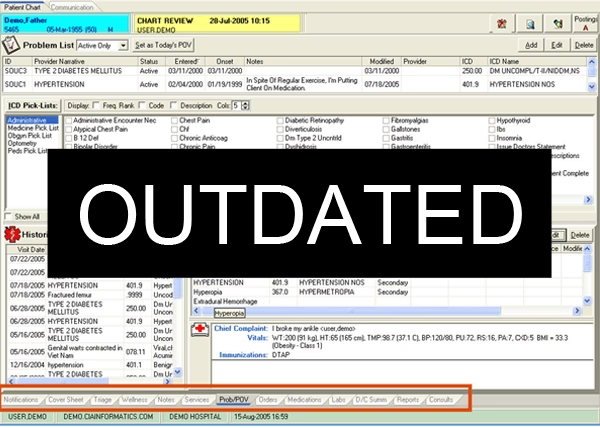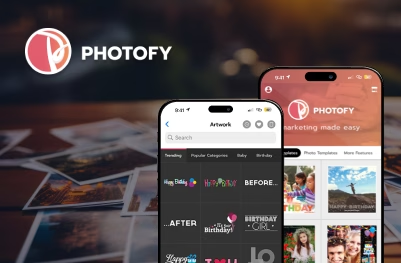- Developers
- Developer Blog
- Blockchain Development
- How Blockchain Ensures Medical Records Security?

profile

By Aran Davies
Verified Expert
9 years of experience
Aran Davies is a full-stack software development engineer and tech writer with experience in Web and Mobile technologies. He is a tech nomad and has seen it all.
Wondering how to use blockchain for medical records security? You’ve come to the right place.
In this article
- Problems with Existing Electronic Medical Records (EMRs)
- The Failed Promise of Universal Electronic Medical Records
- Blockchain for Medical Records Security
- Frequently Asked Questions on Using Blockchain for Medical Records Security
With such rapidly escalating costs, governments and health insurance providers would certainly welcome any new technology that could help them save money while also ensuring better patient care.
One technology that promises to help improve efficiency and security measures within the healthcare industry is blockchain.
First pioneered to allow for the creation of a decentralized digital currency by the name of Bitcoin, blockchain can also be used to improve a number of the existing systems the global economy currently relies on.
So, how can blockchain keep medical records secure?
In this article, I intend to examine the way in which blockchain technology is set to revolutionize electronic medical records in the not too distant future.
I will also examine how the integration of smart contracts with the blockchain-based solution could allow our medical records to automate prescription fulfillment and other tasks as well.
First, let’s take a look at the present challenges with medical records security that blockchain technology can help tackle.
Problems with Existing Electronic Medical Records (EMRs)
Most of us remember going to the doctors and seeing them pull out a dreary-looking folder with our name written on the front. If you had found yourself going to the doctors quite frequently, your folder will probably have been loaded with different pieces of paper making it look scarily full.
When I was young, I remember walking past this immense collection of files as I made my way to see the doctor and thinking two things:
- How do they find my small file in such a huge amount of folders that all look the same?
- What would happen if there was a fire or an accident where all these records got destroyed?
The second thought scared me a little. Would this mean that I would have to have all those horrible injections again because they weren‘t sure what I had already had and what I hadn‘t?

Get a complimentary discovery call and a free ballpark estimate for your project
Trusted by 100x of startups and companies like
Clearly, these kinds of thoughts had not escaped governments either. The advent of the personal computer saw governments around the world determined to create electronic medical records to replace all of our dusty old paper records.
The Failed Promise of Universal Electronic Medical Records
In the early 2000s, tech experts everywhere were making incredibly optimistic predictions about how electronic medical records were set to save the healthcare industry enormous amounts of time and money.
RAND Corp predicted in 2005 that the adoption of EMRs “could eventually save more than $81 billion annually.” Just over a decade later and the promise of universal EMRs, and the savings they promised, have still failed to materialize.
But what were the reasons behind this? After all, any computerized record has to be better than the paper version, right?

There were a few fundamental reasons why the attempt to create universal electronic records failed.
- System/Program Compatibility – The biggest problem in developing a universal electronic medical record is overcoming system compatibility issues.
- Poor User Experience – Badly designed user interfaces and poor workflows have led to a deep sense of frustration among doctors. Whereas with a paper form, doctors could quickly jump to any relevant section, with a computerized form they are often forced to waste valuable time trying to skip through pages until they get to the one they want.
- Data Entry is often time-consuming – A large numbers of doctors find data entry very laborious. This is one of the main negatives doctors cite when asked about their experience using EMRs.
- Overcomplicated – Many EMR programs feature such things as alert alarms or reminders. While these are built-in to try to prevent doctors from overlooking important problems, they are considered an unwanted nuisance by many.
- A universal solution for individual problems – Doctors also dislike EMRs because they often lack the necessary electronic health information or pages to input important data. In the past, doctors could simply include a note or fax a report to the relevant department in a matter of seconds.

The chart above shows just how widespread dissatisfaction with EMRs has become. It is important not to underestimate the seriousness of this problem. A single oversight or mistake by a doctor could result in death.
It is for this reason that EMRs should decrease workload as well as make life easier for the doctors who rely on them.
Blockchain for Medical Records Security
So, how can blockchain ensure medical records security and succeed when other systems have already failed?
Securing medical records with blockchain would allow for the first viable universal electronic medical records. I‘m aware that many people will remember reading the same kind of statement back in the early 2000s, but this time there is a difference.
Up until now, conventional electronic medical records databases were not able to offer the all-important medical records security that would allow them to have physical access control anywhere, anytime, and on any system. Overcoming compatibility issues between different software applications was just one of the problems.
The next question became who would store these records and ultimately be responsible for them should there be a data breach that demanded some accountability.
Fortune’s article “Hackers Don’t Want Your Credit Card. They Want Your Medical Records. quoted Roy Schoenberg, CEO of American Well Corp, as saying that “when considering online privacy and data security our chief concerns are often financial records, credit card numbers, and bank account details. But it might be surprising to learn how little value those actually hold to hackers: anywhere from ten cents to a couple of dollars”. However, “medical records can sell for up to $30 each.”
Medical Records Security Is Too Much of a Risk
The statement above shows just how much is at stake when it comes to our medical records. Health companies risk massive financial losses should they not adequately protect our data.
In 2023, 725 data breaches were reported to the Office for Civil Rights and across those breaches, more than 133 million records were exposed or impermissibly disclosed, according to a report.
In some cases, cyber attackers demand ransoms to be paid as part of a ransomware attack, while the failure to report a breach within 60-days leads to other organizations receiving hefty fines.
It is for this reason that healthcare providers are so reluctant to try out new systems or to allow other healthcare providers access to their records.
Hire expert developers for your next project
1,200 top developers
us since 2016
Electronic Health Record Systems Blockchain Solution: Advantages
The solution is to use blockchain for medical records security, but many physicians are left wondering – how can blockchain keep medical records secure.
Blockchain technology would prevent the majority of the 725 separate breaches that took place in 2023 from ever happening. Any attack that exploited the single point of failure weakness of the traditional client-server model would be useless against a blockchain database.
Since blockchain technology relies on a distributed network, there is no one point of failure. This means that it is not possible for hackers to simply find an electronic health record security flaw and then gain access to the data in this way.
Should a hacker target any one node on the blockchain network and attempt to make an unauthorized change then the other nodes will prevent it from happening.
As each participant on the network has a complete copy of the entire blockchain ledger, they are able to independently verify any new block being added and identify any attempt to alter any previous block.
Blockchains are designed to be unalterable once written unless the change has the support of 51% of the network. This makes them excellent for storing patient medical records as it means any data in the record cannot be tampered with.
As every new data block that is added would also contain details of the doctor who added it, blockchain EMRs would offer full accountability for the data that they contain.
In the case of incorrect diagnoses, for example, patients could be confident that there is no way that records could be altered should the doctor or healthcare provider wish to deny accountability.
Universal Access
The fact that it is possible to encrypt data stored on a blockchain means that it is possible to keep sensitive patient data on these distributed networks without the risk of unauthorized access.
Creating a non-centralized EMR blockchain would mean that it is possible for any authorized healthcare provider to access patient information.
Since no one healthcare provider would be liable for any data breach when using such a database, there need not be any resistance to making records universally available. As long as a provider has software that is compatible with the data to the blockchain, they will be able to access it.
All that would be required is for a patient to authorize access to their protected health information, possible through a secure blockchain-based ID verification solution like Sovrin. After this, the doctor would have full access to their records and would, therefore, be able to treat the patient.
Aside from allowing lifesaving care by emergency services to be improved, such universal access to personal health information also promises to save healthcare providers huge sums of money from lower administration costs relating to the upkeep and transfer of records as well as from reduced liability from data breaches, etc.
EMRs and Automation
The really exciting thing about this new health information technology is not just how blockchain securely stores health records but how blockchain also allows for automation to be added to EMRs.
Imagine being able to go to a doctor, and after they issue a prescription, being able to go to the pharmacy where it was already waiting ready for collection. The integration of smart contracts with blockchain-based EMRs would make this possible.
Smart contracts can be programmed to initiate just about any set of actions imaginable. In the above case, a contract would be created once the doctor entered a prescription into the system. This would immediately send a request to the pharmacy who would then be able to prepare the order.
Such a system would also allow subsequent prescriptions to be automatically issued without the need for the patient to return to the doctor.
In many cases, patients are forced to make such trips as health care providers are not able to give out large doses of drugs that carry the risk of overdose, etc. Automated EMRs could help make this problem a thing of the past.
Summary of Potential Advantages to Blockchain EMR:
- Universal access
- Real-time up-to-date records
- Reduced costs
- Better security
- Automation through the use of smart contracts
- Health insurance portability
- Health care organizations no longer need to keep large amounts of records on their system
All these points provide an answer to the question How can blockchain keep medical records secure?
Hire expert developers for your next project
A Workable Solution
The great news is that companies like Medicalchain are already developing blockchain-based EMRs. Medicalchain has already begun working with Britain‘s NHS in its University Hospital Lewisham and Queen Elizabeth Hospitals and plans to recruit more health organizations to help it develop its software further.
Its platform is built on Hyperledger Fabric architecture and allows universal access to its records, provided that suitable authorization is given.
Medicalchain‘s blockchain solution also allows for varying levels of access to records which means parents can now control or access parts of their children‘s medical records should they need to consult another doctor or prove a child‘s illness to a school, for example.
For more on how this new company intends to unlock the power of blockchain read Chris Hall‘s article “An Introduction to Medicalchain: Blockchain for Electronic Health Records.”
Final Thoughts
Applying blockchain technology to the secure electronic health records industry is set to bring about some exciting new changes to the availability and use of our medical records. I hope I managed to explain whether blockchain can tackle all medical records security concerns and how it will do that.
While it remains in the early days, I do believe that blockchain will overcome the difficulties of technical safeguards that caused such disappointment in past attempts to create electronic medical records.
The main challenge that blockchain is sure to face comes from storing such large amounts of data on the chain. Blockchain bloat is a fundamental problem that pertains to all blockchains.
The amount of medical data required for the 100‘s of millions of medical records currently stored by healthcare providers worldwide will take a vast network of nodes to maintain and process.
With the leading smart contract platform, Ethereum‘s, network already running at 100% capacity, the question is can blockchain developers overcome the network-related problems that currently affect blockchain technology?
Another issue with blockchain-based personal health records is of medical regulation compliance like Health Insurance Portability and Accountability Act (HIPPA security rule), etc.
Are you, as a business CEO or CTO, looking to partner with experienced software developers for blockchain solution development? DevTeam.Space can help you with its expert blockchain developers community.
Write to us your initial blockchain development requirements via this form and one of our technical managers will get in touch with you to discuss further project details.
DevTeam.Space is an innovative American software development company with over 99% project success rate. DevTeam.Space builds reliable and scalable custom software applications, mobile apps, websites, live-streaming software applications, speech recognition systems, ChatGPT and AI-powered solutions, and IoT solutions and conducts complex software integrations for various industries, including finance, hospitality, healthcare, music, entertainment, gaming, e-commerce, banking, construction, and education, on time and budget.
DevTeam.Space supports its clients with business analysts and dedicated tech account managers who monitor tech innovations and new developments and help clients design, architect, and develop applications that will be relevant and easily upgradeable in the years to come.
Frequently Asked Questions on Using Blockchain for Medical Records Security
Medical records can be stored on a blockchain. Thanks to the decentralized nature as well as the design of blockchain technology, these records are tamper-proof and not controlled by any single authority.
Provide that the blockchain software has been coded properly, particularly in terms of the data encryption function, then blockchain medical records are secure.
In order to create a blockchain solution, you will need experienced blockchain developers. Once software code is added to a blockchain it is very hard to alter so your application needs to be well coded and reviewed by experienced developers. You can find such developers in the DevTeam.Space community.

Alexey Semeney
Founder of DevTeam.Space
Hire Alexey and His Team To Build a Great Product
Alexey is the founder of DevTeam.Space. He is award nominee among TOP 26 mentors of FI's 'Global Startup Mentor Awards'.
Alexey is Expert Startup Review Panel member and advices the oldest angel investment group in Silicon Valley on products investment deals.


